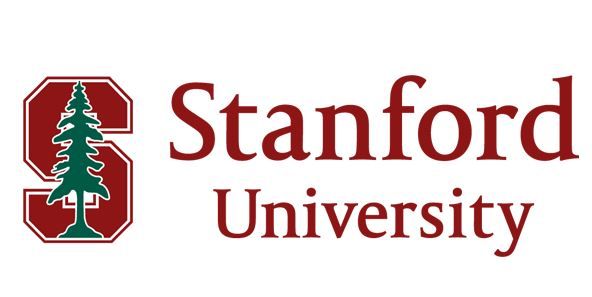
Stanford University makes available to you free online course named as “Introduction to Mathematical Thinking”. The course is aimed to develop or improve mathematics-based, analytic thinking for professional or general life purposes.
Mathematical thinking is not the same as doing mathematics – at least not as mathematics is typically presented in our school system. School math typically focuses on learning procedures to solve highly stereotyped problems. The course will start on March 6, 2017.
Course At A Glance
- Length: 10 Week
- Effort: Expect to require at least 10 hours of study per week to complete this course satisfactorily.
- Subject: Math
- Institution: Stanford University
- Languages: English
- Price: Free
- Certificate Available: Yes
- Session: The course will start on March 6, 2017
Providers Details
- About University: The Leland Stanford Junior University, commonly referred to as Stanford University or Stanford, is an American private research university located in Stanford, California on an 8,180-acre (3,310 ha) campus near Palo Alto, California, United States.
- Aim of University: The aim of the university is to provide guidance and support for postdoctoral scholars who are interested in pursuing a career path in the industry. Their main goal is to create a fertile networking environment for entrepreneurially minded postdocs and ease the transition between postdoc and industry.
Requirements
Basic knowledge of mathematics
About This Course
- Benefits: This ten-week course is designed with two particular audiences in mind. First, people who want to develop or improve mathematics-based, analytic thinking for professional or general life purposes. The language of the course is English.
- Importance of the Subject in Today’s Scenario: Mathematics is one of the most important subjects of our life. No matter to which field or profession you belong to, its use is everywhere. That is why it is necessary to have a good understand of the subject. Though the basics of mathematics start from school but its usage continues till we become adults and thus it can be said that maths has become an integral part. Imagining our lives without it is like a ship without a sail.
How to Join This Course
You should signup yourself through the given link to join this free on-line course: https://www.coursera.org/learn/mathematical-thinking?authMode=signup
Course Format
WEEK 1: START with the Welcome lecture. It explains what this course is about. (It comes with a short Background Reading assignment, to read before you start the course and a Reading Supplement on Set Theory for use later in the course, both in downloadable PDF format.
WEEK 2: In Week 2 they continue our discussion of formalized parts of language for use in mathematics. By now you should have familiarized yourself with the basic structure of the course.
WEEK 3: This week they continue their analysis of language for use in mathematics. Remember, while the parts of language they are focusing have particular importance in mathematics, main interest is in the analytic process itself
WEEK 4: This week they complete their analysis of language, putting into place the linguistic apparatus that enabled, mathematicians in the 19th Century to develop a formal mathematical treatment of infinity, thereby finally putting Calculus onto a firm footing, three hundred years after its invention.
WEEK 5: This week they take their first look at mathematical proofs, the bedrock of modern mathematics.
WEEK 6: This week they complete their brief look at mathematical proofs
WEEK 7: The topic this week is the branch of mathematics known as Number Theory. Number Theory, which goes back to the Ancient Greek mathematicians, is a hugely important subject within mathematics, having ramifications throughout mathematics, in physics, and in some of today’s most important technologies.
WEEK 8: In this final week of instruction, they look at the beginnings of the important subject known as Real Analysis, where we closely examine the real number system and develop a rigorous foundation for calculus.
Weeks 9 & 10: Test Flight provides an opportunity to experience an important aspect of “being a mathematician” evaluating real mathematical arguments produced by others. There are three stages.
Why Take This Course
- Advantage of Course: The key to success in school math is to learn to think inside-the-box. In contrast, a key feature of mathematical thinking is thinking outside-the-box – a valuable ability in today’s world. This course helps to develop that crucial way of thinking.
- Certificate: You can pursue a verified certificate, your electronic Certificate will be added to your Accomplishments page – from there, and you can print your Certificate or add it to your LinkedIn profile.
Learning Outcomes
- After completing the course you will learn how to think the way mathematicians do.
- The course will develop or improve mathematics-based, analytic thinking for professional or general life purposes.
- The course provides an opportunity to experience an important aspect of “being a mathematician”: evaluating real mathematical arguments produced by others.
Instructors
Dr. Keith Devlin: He is Co-founder and Executive Director.
Suggested Reading
Mathematics concepts.
You Might Also Be Interested In
If you are interested in mathematics you can also join this course named as “Pre-Calculus: Trigonometry”.
Conclusion
- Professional mathematicians think a certain way to solve real problems, problems that can arise from the everyday world, or from science, or from within mathematics itself. The course considers only some very elementary parts of the subject, using them primarily to illustrate mathematical thinking.
- If you pay for the certificate then you can receive an instructor-signed certificate with the institution’s logo to verify your achievement and increase your job prospects.
Detailed Information
For more information about the course, you can check the given link:
https://www.coursera.org/learn/mathematical-thinking

